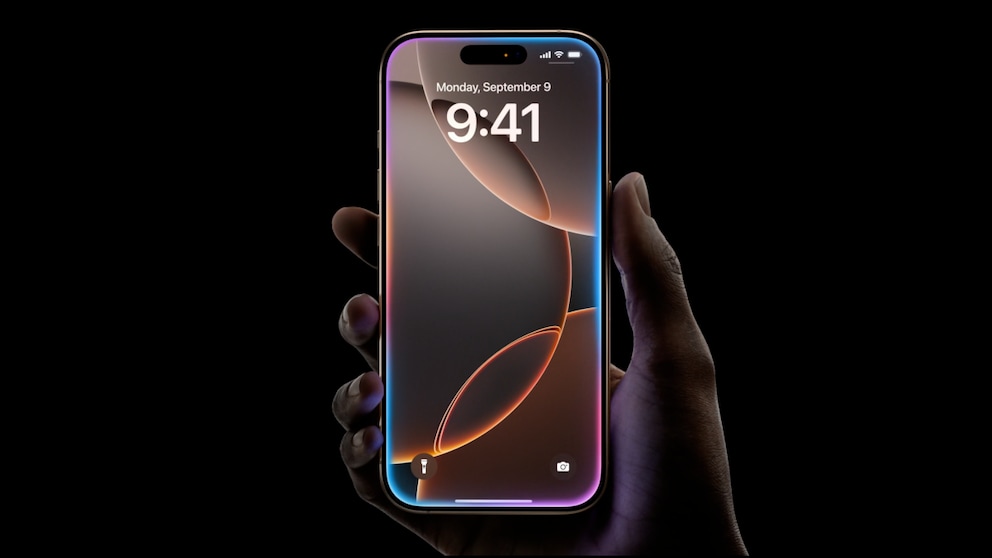September 17, 2024, 8:38 am | Read time: 8 minutes
This year, Apple did not hold its big keynote on a Tuesday as usual, but on Monday. The highlight was the long-awaited presentation of the iPhone 16. The manufacturer once again presented four models in the series.
Apple has been offering different iPhone models of the same generation for a long time. Since the iPhone 14, however, the manufacturer has taken a slightly different approach. Since then, significant technical differences have existed between the basic and Pro models. This is also the case with the iPhone 16 and iPhone 16 Plus, as well as the iPhone 16 Pro and Pro Max. TECHBOOK summarizes the most important facts about the new devices.
Overview
These are the new models
As mentioned at the beginning, the iPhone 16 range once again comprises four models:
- iPhone 16
- iPhone 16 Plus
- iPhone 16 Pro
- iPhone 16 Pro Max
Particular attention is paid to the Pro models, as Apple has integrated the biggest innovations here. This can be seen not only in the camera but also in the processor and battery. The other two devices, on the other hand, have many of the features from last year’s Pro models. Apple has, therefore, remained true to the approach it started in 2022. For users, this means If you want to experience Apple’s latest iPhone developments, you need a 16 Pro or Pro Max.
Size, design, and display
Since the iPhone 15, all four Apple smartphones have featured the Dynamic Island, an interactive display notch. This year, users will have to do without this change in function and design – it is simply already familiar. Instead, the capacitive and freely assignable Action Button has been added to the standard iPhones; previously, it was only available on the Pro models.
Otherwise, Apple has made a few changes to the design of the iPhone 16. One exception is the arrangement of the rear cameras. Apple has returned to a vertical camera design for the standard models. This enables the recording of spatial videos that can be played back on the Vision Pro mixed reality headset. Previously, the manufacturer had relied on a diagonal camera arrangement for several years to make room for larger sensors.
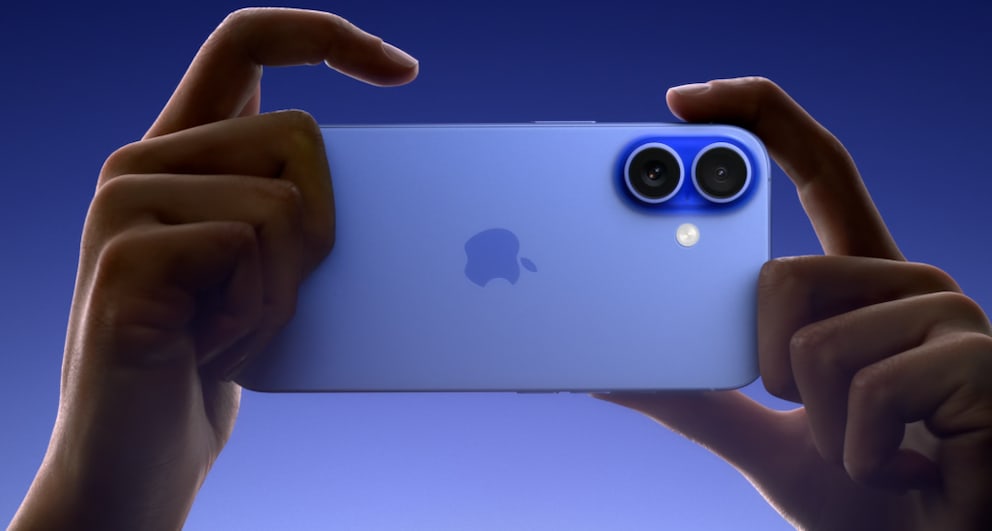
In terms of size, the iPhone 16 and iPhone 16 Plus retain the usual display diagonals of 6.1 inches and 6.7 inches. However, the Pro models are slightly larger than their predecessors. The iPhone 16 Pro has grown from 6.1 to 6.3 inches, and the Pro Max from 6.7 to 6.9 inches. However, Apple has reduced the display edges slightly so that the actual housing has only become marginally larger. The frame of the Pro models is made of high-gloss titanium, which makes it particularly resistant to scratches.
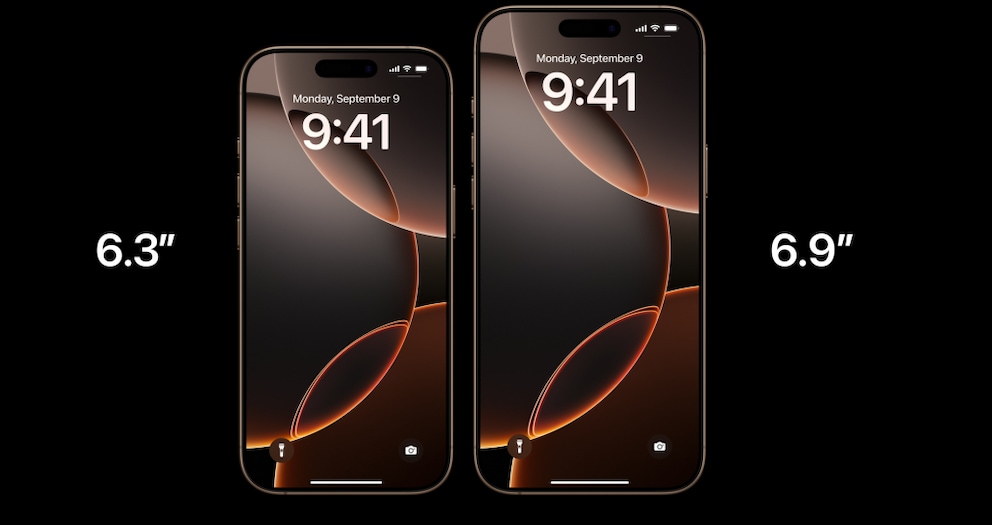
The manufacturer relies on OLED technology for all four smartphones, more specifically, Super Retina XR. The resolution is 2556 x 1179 pixels on the iPhone 16, 2796 x 1290 pixels on the iPhone 16 Plus, 2622 x 1206 pixels on the iPhone 16 Pro, and 2868 x 1320 pixels on the iPhone 16 Pro Max.
Two completely new chipsets
With the iPhone 14, Apple started to install different chips in the basic and Pro models. Both the iPhone 14 and 14 Plus, as well as the iPhone 15 and 15 Plus, come with the previous year’s chip, and only the Pro models are equipped with the really new hardware. In the current generation, however, Apple is relying on two chip variants to differentiate the Pro model from the basic iPhones: the A18 Pro and the slightly less powerful A18.
Both chips are intended to make the iPhone 16 fit for advanced generative AI functions, which Apple had already advertised in advance. Apple is sticking to the familiar 2+4 configuration for both variants. This means that each is a hexacore chip.
With the A18, Apple has presented a somewhat slimmed-down but new chip for the standard iPhones for the first time. It is essentially based on the architecture of the premium A18 Pro chip, but the cores do not clock quite as high, and the GPU has five instead of six cores. As a result, the performance is somewhat slimmed down in various areas.
However, the real “star” and basis for the fast performance of the iPhone 16 Pro and Pro Max is the A18 Pro. It was manufactured using the 3-nanometer process by the supplier TSMC. The maximum clock rate is above the 4 GHz limit for the first time – a first for Apple. According to the company, the chip offers 15 percent more performance than the A17 Pro, while the GPU with its six cores even achieves an increase of around 40 percent. At the same time, the chip is even more energy-efficient than its predecessor. Not only have the CPU and GPU been improved, but also the Neural Engine, which is required for AI.
Apple’s most important iPhone innovation is not coming to Germany
During the presentation of iOS 18 at WWDC, Apple Intelligence was advertised as one of the most important innovations. It was actually expected that the AI feature would come to the iPhone 16 together with iOS 18 and thus be available right at launch. However, Apple did not get the function ready in time and will, therefore, only deliver it with iOS 18.1. This update is expected in October at the earliest.
However, this restriction does not apply to users in Europe, as they will have to make do without Apple Intelligence for the time being anyway. Due to special guidelines in connection with the Digital Markets Act (DMA), Apple cannot offer certain functions in this country without modifying them. However, the US manufacturer does not want the latter. The result is that Apple Intelligence, iPhone Mirroring, and SharePlay screen sharing are not coming to Germany.
Wi-Fi 7 in the iPhone 16 Pro (Max)
Last year, the iPhone 15 Pro and 15 Pro Max received exclusive support for Wi-Fi 6E. Now, the standard is also coming for iPhone 16 and 16 Plus. However, Apple is relying on the recently introduced Wi-Fi 7 standard for the Pro models. This not only enables up to nine times faster transmission speeds but also a much more stable connection.
The iPhone 16 Pro and 16 Pro Max have also been equipped with a new Qualcomm modem called X75, which increases speeds in the 5G network.
New camera system
The camera of the iPhone 16 always plays a special role. It’s not just Apple that focuses on the photo and video performance of its smartphones; other manufacturers also like to measure themselves against it.
A new feature on all four Apple smartphones is the so-called camera control button for taking photos and videos. It fits perfectly into the housing frame. Like a classic camera, it can be used to adjust the autofocus by pressing lightly or taking a photo by pressing and holding. Sliding over the button allows you to adjust the zoom continuously or make settings in apps such as Snapchat.
iPhone 16 Pro
In line with the current trend, the major innovations in the camera area are once again only available on the Pro models. The iPhone 16 Pro and Pro Max have an identical camera module, including the new ultra-wide-angle camera with 48 megapixels. This means that both lenses now have a resolution of 48 megapixels. They can be used to take pictures in RAW with even more detail. There is also a telephoto lens with 12 megapixels.
The camera of the iPhone 16 Pro and Pro Max is able to record videos in 4K resolution at 120 fps (frames per second) for the first time. Previously, a maximum of 60 fps was standard. The upgrade enables the new “Cinematic Slow Motion” mode. In other words, video recordings in slo-mo.
iPhone 16
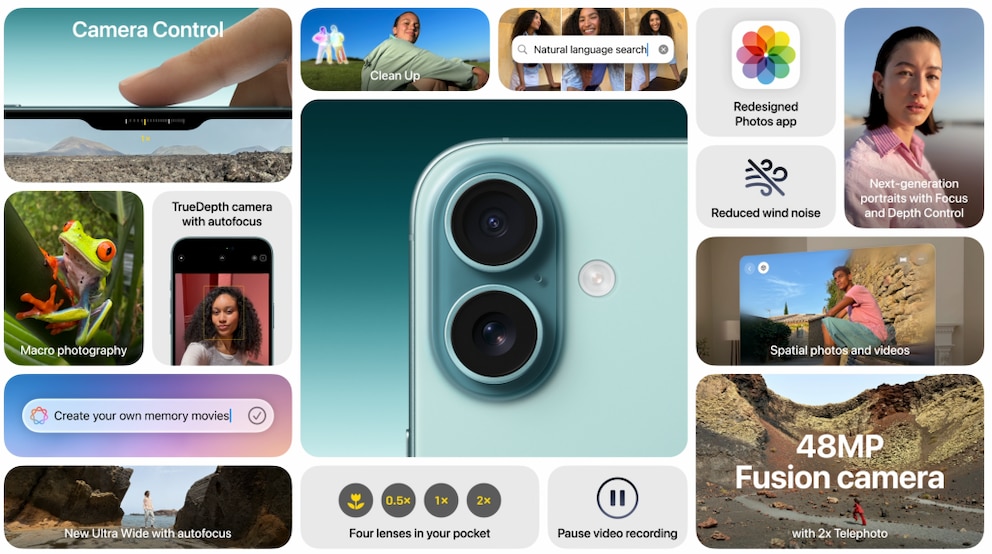
The basic iPhone 16 and 16 Plus models have a 48-megapixel wide-angle camera that is already familiar from the iPhone 15, combined with a 12-megapixel telephoto camera. There is also an ultra-wide angle with 12 megapixels. A new feature is the macro mode, which was previously reserved for the Pro series.
Disappointment with charging performance
Apple itself is always somewhat reticent with details on battery capacity. However, significant improvements in charging performance were expected. Fast charging with up to 40 watts was discussed in advance but did not materialize. The iPhone 16 models charge via MagSafe with up to 25 watts. Otherwise, a maximum of 15 watts is possible.

Hardly any iPhones are ready for iOS 18

iPhone 16 Pro — Features, Benefits, and Rating

Apple Relaunches Its Affordable Smartphone Range with the iPhone 16e
Prices and availability
The new iPhones can be pre-ordered from Apple, the major electronics stores, and mobile phone providers from Friday, September 13 onward. Apple will begin shipping on September 20.
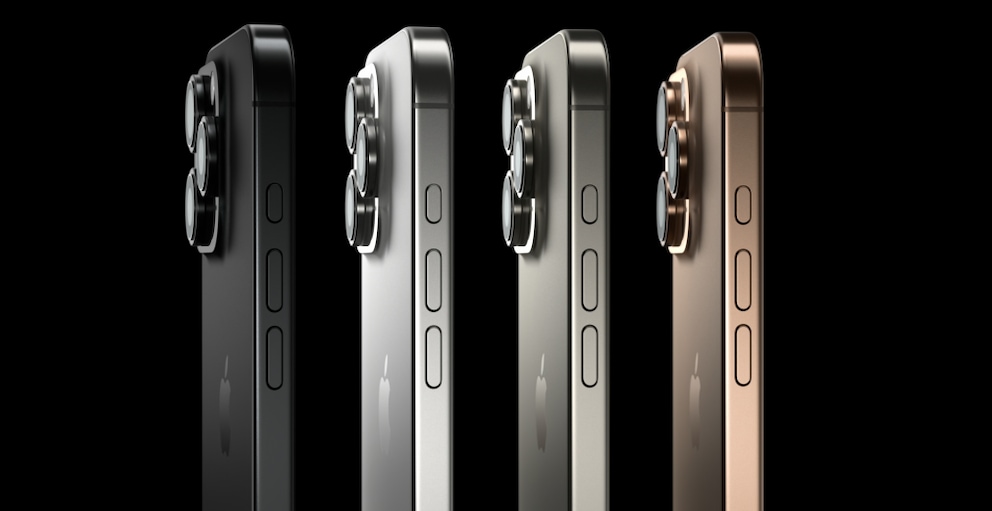
As with every new iPhone generation, there is also a completely new color this year. In addition to the familiar white, black, and gray versions, the iPhone 16 Pro and Pro Max will also be available in “Titan Desert,” a kind of brown or bronze. The devices traditionally come in more muted colors, so the brownish version fits in well with the portfolio. However, opinions on the color differ. While some are enthusiastic, others call it “boring.”
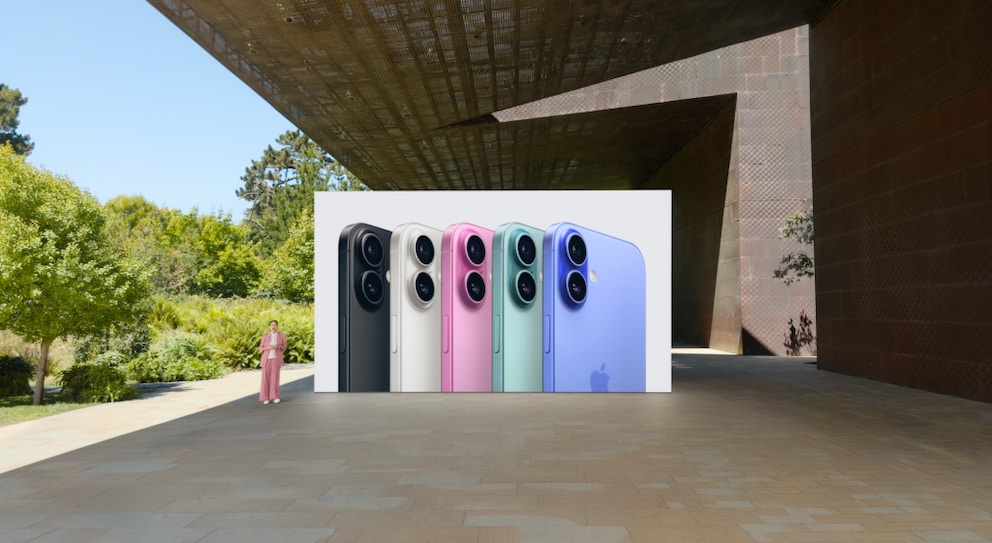
On the other hand, the iPhone 16 and 16 Plus are colorful. They are not only available in black and white but also in green, pink, and blue.
Prices for the iPhone 16 and 16 Plus start at 949 EUR and 1099 EUR, respectively. This means that both models have the same RRP as their predecessors at launch in September 2023. The same applies to the Pro models, which are available from 1199 EUR and 1449 EUR, respectively.

